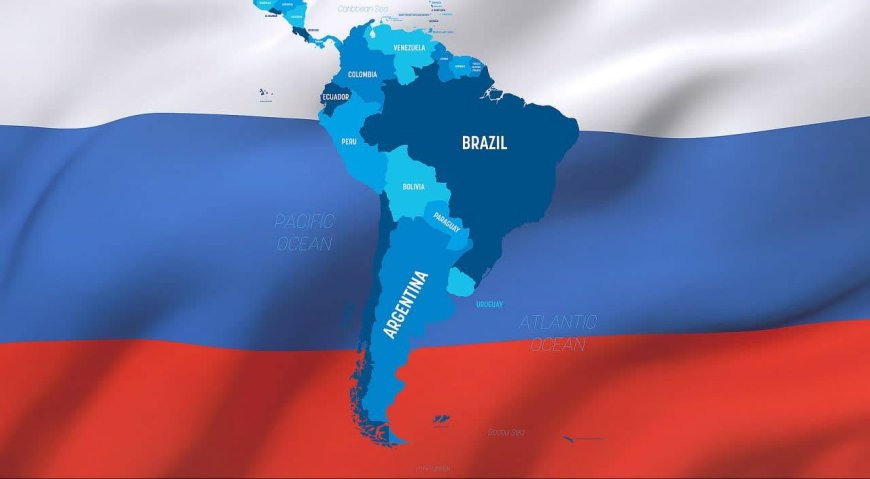Sergey Lavrov in South America: Moscow's bid for a global multipolar order
In the face of Western economic sanctions, countries like Russia have sought to increase their ties with African and Latin American states in recent years. These developing nations are attractive to the world's leading powers because of their untapped natural resources and strategic geographic location. Russia's Foreign Minister Sergey Lavrov is reportedly touring four Latin American countries to expand Moscow's political clout and forge new commercial ties. Throughout his regional tour, Mr Lavrov met with the leaders of Bolivia, Nicaragua, Cuba, and Brazil, introducing the idea of a new, broader discourse: the multipolar world. A new multipolar global system is emerging as part of a global revolution in which Western powers are declining.

Russia's long-term strategy to expand into Latin America, which Washington has traditionally considered its backyard, is not confined to the introduction of a single project or the signing of controversial military accords; rather, Russia and China, on the one hand, and the emerging powers in Africa and South America, on the other, are laying the groundwork for a new and more crucial cooperation roadmap to sustain the concept of a multipolar global order. The shaky dominance of the US dollar in international economic transactions is another critical factor that threatens the current international order. Today, China (along with Russia, India, Iran, etc.) is working to alter this situation.
Dissatisfied with the status quo, China and Russia aim to establish rival international organisations with the West to address global issues. Many nations, including Brazil, India, Iran, and South Africa, have responded positively to these changes. The West's efforts to isolate these independent countries have only served to heighten cooperation between them, many of whom are members of powerful international alliances like the Shanghai Organisation and the BRICS group.
With the president of Brazil proposing that the BRICS nations form a group similar to the Group of 20 with the express purpose of pursuing peaceful solutions, particularly concerning the deteriorating situation in Ukraine, the BRICS have expanded their cooperation beyond economics.
Latin American nations growing ties to China and Russia problematise the US strategy in South America. To combat US hegemony, Moscow and Beijing encourage the South American countries to cease their geographic isolation by forging geopolitical alliances with the East's rising bloc. Russia needs additional resources and economic capacities to become a key partner of Latin American nations. However, the issue is that the Kremlin cannot match the United States' massive investments in Latin America. Yet, the idea of transitioning to a multipolar global order is growingly popular in the region, and Russia's arguments for it strongly impact many governments and politicians.
The economic, social, and cultural linkages between Latin America and the United States make the transfer of US influence to Russia or China more challenging than Moscow or other players assume. So, even if the Chinese dragon emerges victorious in the long run, the Russian bear will still profit.
Today, the United States has a twofold challenge: how to influence Brazil and other emerging nations to embrace a more pro-Western foreign policy. Second, how precisely will the local allies of the United States benefit from the United States investments in Latin America?
Washington’s relentless efforts to demonise the Moscow-Beijing alliance are not taken seriously by many Latin American leaders because of the White House's dark history of involvement in Latin American politics.
In conclusion, forming a multipolar world, pursued more earnestly every day, is vital for Tehran, which has always needed stable strategic allies throughout its modern history.













































